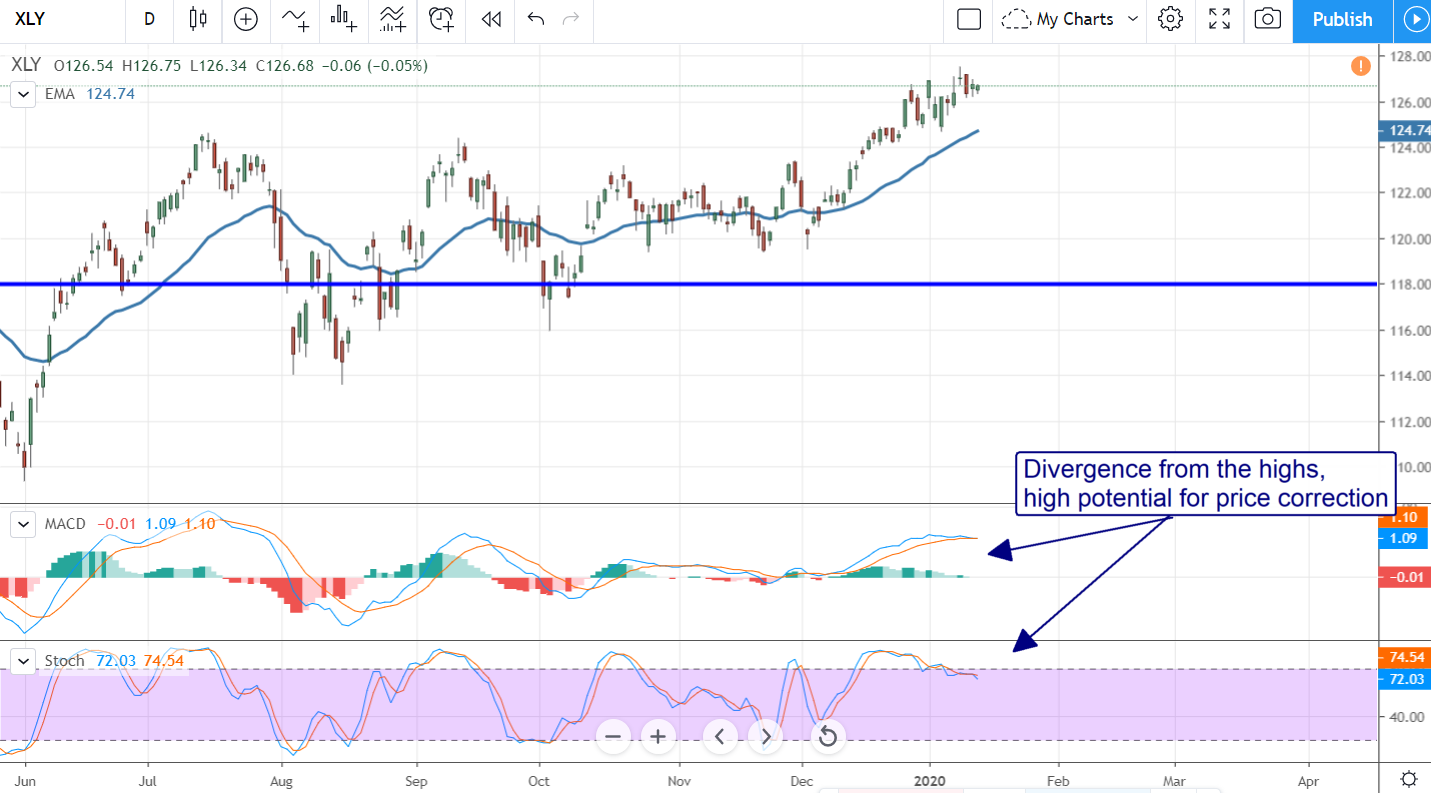Bellwether’s of the Economy
The peak of earnings just kicked off with reports from three of the nation’s largest financial institutions. In ordinary times these reports are closely watched as bellwethers of the economy and these are hardly ordinary times. International trade relations have dampened global economic activity and yet the U.S. consumer has thrived.
JP Morgan (JPM) topped the headlines with its stunning results. Revenue and earnings fell slightly from the third to the fourth quarter but only slightly and much less than expected. Year over year, revenue grew 8.4% and drove a $0.22 beat on the bottom line. As a bellwether, these numbers suggest underlying strength in U.S. businesses but there’s more to it.
JP Morgan’s results are driven by the consumer. Strength in consumer segments juiced results across all segments and those trends are not expected to end soon. The labor data continues to show tight markets and high demand for labor which equates to business for consumer banks. If anything, consumer trends will continue to strengthen in 2020.
"The U.S. consumer continues to be in a strong position and we see the benefits of this across our consumer businesses," said JPMorgan Chairman and CEO Jamie Dimon.
Citigroup ( C ) is equally upbeat on the consumer. The bank beat on the top and bottom lines and saw EPS grew sequentially as well as YOY. CEO Michael Corbat notes “continued strong growth in branded Cards and momentum in attracting digital deposits to the U.S. consumer business”
The Signs Are Clear, The Consumer Is Strong
News from Lululemon (LULU) helps drive home the point that consumers are strong, if not where they will spend their money. The company raised its guidance for the second time in under five weeks due to unexpectedly strong results in the holiday quarter. Foot-traffic at the brick and mortar stores was up 10% but direct-to-consumer is the real story. Lululemon increased its online sales by nearly 30% proving two things. People have money to spend on things they value and it’s possible to compete with Amazon.
Others, like Target (TGT) and Walmart (WMT), are poised to show similar strength. Both have been taking market share from malls and big retailers, as well as Amazon, so expect them to exceed consensus when they report.
Consumer Discretionary Under Pressure
The consumer discretionary sector has been under pressure, at least regarding the earnings outlook. While the estimates for 4th quarter earnings have been steadily declining, the price of discretionary stocks has been rising, a situation not typical in a sector with negative earnings growth on tap.
Over the last quarter, the average estimate for earnings growth among consumer discretionary stocks at the sector level has fallen more than 15%, from 2.5% to -13.5%. At the same time, the Consumer Discretionary ETF (XLY) has risen 8.5%, a major disconnect from earnings. This may be because growth is expected to rebound in 2020, to 12.5% versus this years -1.5%, or because the analyst’s estimates are overly cautious, but we may never know.
Much of the weakness in earnings can be attributed to the automotive industry. GM and Ford are among the handful of companies with downward revisions greater than 10% but they are not alone. Amazon, Gap, and Hasbro are also on the list, showing a broad-based expectation for weakness in consumer spending for the 4th quarter.
With so much gloom among the analysts, the hurdle for consumer stocks to beat is very low indeed.
Better than expected earnings may cause the consumer stocks to pop but it will be the guidance that keeps them there. Because earnings growth is expected to rebound in the 1st quarter what the bulls need to see is upward revisions to current outlook and consensus estimates. Based on results from the banks, the estimates for 2020 EPS growth could begin to tick higher as the consumer discretionary companies begin to report.
Consumer Discretionary: The Technical Outlook
The technical outlook for the Consumer Discretionary Sector ETF (XLY) is precarious. The daily charts show an ETF sitting at fresh all-time highs and not supported by the indicators. The way things are set up now, it looks like the market is waiting for earnings to be released and investors are ready to sell if they don't get what they want.
The worst thing about high expectations is they can be easily disappointed so there is more than a little risk. A round of bad reports and the ETF could sell-off by the end of the reporting cycle. The indicators are consistent with weakening markets which adds another element of risk, so I would be cautious with new entries until the earnings reports begin to come out. If the consumer companies beat consensus and begin to raise guidance we may see the XLY rally to new highs very soon.

Before you make your next trade, you'll want to hear this.
MarketBeat keeps track of Wall Street's top-rated and best performing research analysts and the stocks they recommend to their clients on a daily basis.
Our team has identified the five stocks that top analysts are quietly whispering to their clients to buy now before the broader market catches on... and none of the big name stocks were on the list.
They believe these five stocks are the five best companies for investors to buy now...
See The Five Stocks Here
MarketBeat just released its list of 10 cheap stocks that have been overlooked by the market and may be seriously undervalued. Enter your email address and below to see which companies made the list.
Get This Free Report
Like this article? Share it with a colleague.
Link copied to clipboard.